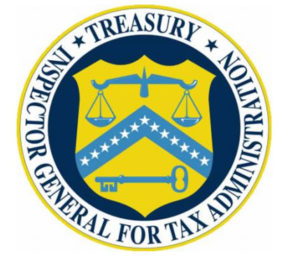National Taxpayer Advocate Delivers Annual Report to Congress; Focuses on Taxpayer Service and Taxpayer Bill of Rights
Monday, January 19th, 2015 @ 4:59PM
WASHINGTON — National Taxpayer Advocate Nina E. Olson today released her 2014 annual report to Congress, which expresses concern that taxpayers this year are likely to receive the worst levels of taxpayer service since at least 2001 when the IRS implemented its current performance measures. The report recommends that Congress enact a principles-based Taxpayer Bill of Rights, adopt additional safeguards to make those rights meaningful, and provide sufficient funding to make the “Right to Quality Service” a reality.
In the preface to the report, Olson emphasizes four points:
- “First, the budget environment of the last five years has brought about a devastating erosion of taxpayer service, harming taxpayers individually and collectively;
- “Second, the lack of effective administrative and congressional oversight, in conjunction with the failure to pass taxpayer rights legislation, has eroded taxpayer protections enacted 16 or more years ago;
- “Third, the combined effect of these trends is reshaping U.S. tax administration in ways that are not positive for future tax compliance or for public trust in the fairness of the tax system; and
- “Fourth, this downward slide can be addressed if Congress makes an investment in the IRS and holds it accountable for how it applies that investment.”
The report says the combination of the IRS’s increasing workload, the erosion of public trust occasioned by the IRS’s use of “tea party” and similar terms in screening applicants for tax-exempt status, and the sharp reduction in funding have created a “perfect storm” of trouble for tax administration and therefore for taxpayers. “Taxpayers who need help are not getting it, and tax compliance is likely to suffer over the longer term if these problems are not quickly and decisively addressed,” Olson wrote.
The report also urges Congress to enact comprehensive tax reform, pointing out that simplification would ease burdens on taxpayers and the IRS alike.
TAXPAYER SERVICE LEVELS EXPECTED TO FALL TO NEW LOWS
The report describes the decline in taxpayer service in detail and attributes the decline to a combination of more work and reduced resources for the IRS.
Scope of Taxpayer Service Needs. Nearly 200 million Americans interact with the IRS each year, more than three times as many as any other federal agency. (Individuals file nearly 150 million returns, including about 50 million joint returns.) Because of the complexity of the tax code, large numbers of taxpayers turn to the IRS for assistance. The IRS typically receives more than 100 million telephone calls, 10 million letters, and 5 million visits at its walk-in sites from taxpayers each year.
Decline in Taxpayer Service Levels. IRS taxpayer service reached its high-water mark in fiscal year (FY) 2004. In that period, the IRS answered 87% of calls from taxpayers seeking to speak with an assistor, and hold times averaged 2.5 minutes. The IRS also responded to a wide range of tax-law questions, both on its toll-free lines and in its roughly 400 walk-in sites, prepared nearly 500,000 tax returns for taxpayers who requested help (particularly low income, elderly, and disabled taxpayers), and maintained a robust outreach and education program that touched an estimated 72 million taxpayers.
By comparison, the IRS’s diminished service expectations for FY 2015 are as follows:
- The IRS is unlikely to answer even half the telephone calls it receives, and levels of service may average as low as 43%.
- Taxpayers who manage to get through are expected to wait on hold for 30 minutes on average and considerably longer at peak times.
- The IRS will answer far fewer tax-law questions than in past years. During the upcoming filing season, it will not answer any tax-law questions except “basic” ones. After the filing season, it will not answer any tax-law questions at all, leaving the roughly 15 million taxpayers who file later in the year unable to get answers to their questions by calling or visiting IRS offices.
- Tax return preparation assistance has been eliminated.
More Work, Reduced Resources. On the workload side, the IRS is receiving 11% more returns from individuals, 18% more returns from business entities, and 70% more telephone calls (through FY 2013) than a decade ago. During the upcoming filing season, implementation of the Patient Protection and Affordable Care Act and the Foreign Account Tax Compliance Act are both expected to add considerable new work.
On the resources side, the IRS’s budget has been reduced by about 17% in inflation-adjusted terms just since FY 2010. As a consequence, the IRS has already reduced its workforce by nearly 12,000 employees and projects further reductions will be needed during FY 2015. In addition, the IRS has reduced the amount it spends on employee training since FY 2010 by 83%. These cutbacks leave the IRS with a shrinking workforce whose employees are less equipped to do their jobs.
“Like any agency, the IRS can operate more effectively and efficiently in certain areas,” Olson wrote. “However, we do not see any substitute for sufficient personnel if high-quality taxpayer service is to be provided. The only way the IRS can assist the tens of millions of taxpayers seeking to speak with an IRS employee is to have enough employees to answer their calls. The only way the IRS can timely process millions of taxpayer letters is to have enough employees to read the letters and act on them. And the only way the IRS can meet the needs of the millions of taxpayers who visit its walk-in sites is to have enough employees to staff them.”
Olson urged Congress and the IRS to work together to ensure that taxpayer needs are met. “We do not think it is acceptable for the government to tell millions of taxpayers who seek help each year, in essence, ‘We’re sorry. You’re on your own,’” the report says.
TAXPAYER BILL OF RIGHTS, SPECIFIC TAXPAYER PROTECTIONS, AND JOINT CONGRESSIONAL OVERSIGHT HEARINGS RECOMMENDED
Since 2007, the National Taxpayer Advocate has been recommending that Congress enact a Taxpayer Bill of Rights, a list of 10 rights based on principles and modeled on the U.S. Constitution’s Bill of Rights. In 2013, the House passed legislation to implement this recommendation, but the Senate did not act. In 2014, the IRS adopted the Taxpayer Bill of Rights administratively, a step Olson praised. However, Olson continues to recommend that Congress enact the provisions by statute to assure taxpayers that the rights will become “a permanent part of our tax system.”
“Taxpayer rights are central to voluntary compliance,” the report says. “If taxpayers believe they are being treated, or can be treated, in an arbitrary and capricious manner, they will mistrust the system and be less likely to comply of their own volition. By contrast, taxpayers will be more likely to comply if they have confidence in the fairness and integrity of the system.”
Noting that the principle-based rights are “only as effective as the specific statutory rights that give [them] effect,” the report recommends that Congress enact specific taxpayer rights that the Advocate has proposed in this and prior-year reports and that relate to each of the 10 conceptual rights. Almost every issue discussed in the Advocate’s report identifies one or more of the rights in the Taxpayer Bill of Rights that the IRS can do a better job of protecting.
In the “Most Serious Problems” section, the report focuses on specific rights provided to taxpayers by the IRS Restructuring and Reform Act of 1998 (RRA 98) and describes how the IRS, for a variety of reasons, is not respecting some of the protections Congress established in that Act. The report also notes that Congress passed taxpayer rights legislation in 1988, 1996, and 1998 but has not passed any significant taxpayer rights legislation in the last 16 years.
“The National Taxpayer Advocate believes the time is right for taxpayer rights legislation,” the report says. “The passage of time has shown where new protections are needed. Without providing these specific taxpayer protections, the [Taxpayer Bill of Rights] becomes merely a statement of principles, without any teeth to ensure that these fundamental rights are protected on a daily basis, and that taxpayers have remedies and the IRS is held accountable for any violations of these rights.”
The report says that funding and oversight are essential to protect taxpayer rights. Noting that the “Right to Quality Service” and other rights can only be honored if the IRS has enough resources, the report says “[t]he IRS will be severely hampered in its ability to implement new policies, procedures, and systems for protecting taxpayer rights if it does not receive adequate funding.”
With regard to congressional oversight, the report says RRA 98 required Congress to hold joint hearings to review, among other things, the IRS’s progress in meeting its objectives and improving taxpayer service and compliance. Each hearing was conducted by majority and minority members of the House Committees on Ways and Means, Appropriations, and Oversight and Government Reform and the Senate Committees on Finance, Appropriations, and Homeland Security and Governmental Affairs. The report recommends these hearings be revived to identify and address problem areas, with emphasis on how the IRS is meeting the needs of particular groups of taxpayers, including individuals, small businesses, and exempt organizations, and how it is protecting taxpayer rights for all.
The report suggests that regular congressional oversight hearings on the “nuts and bolts” of tax administration would go a long way toward educating Members of Congress about the important work of the IRS including its successes and challenges, foster a shared sense of purpose in tackling the challenges, and allow Members to see more closely how funding levels and performance levels interrelate.
“The IRS will never be a beloved federal agency, because it is the face of the government’s power to tax and collect,” Olson wrote. “But it should be a respected agency. When there are accusations of bias or heavy-handed actions by the tax agency, these reinforce the already deep concerns the U.S. taxpayer bears toward taxes, such as concerns going back to the nation’s founding.”
“But casting the entire agency and all its employees as an out-of-control agency in response to the actions of a few, no matter how deplorable those actions may be, is harmful to taxpayers and tax compliance. We need to recognize that the IRS and its employees play a vital role in the economic welfare of this country. And we need to find a way to support the agency even as we hold it accountable for what is often a thankless task.”
OTHER KEY ISSUES ADDRESSED
Federal law requires the Annual Report to Congress to identify at least 20 of the “most serious problems” encountered by taxpayers and to make administrative and legislative recommendations to mitigate those problems. Overall, this year’s report identifies 23 problems, makes dozens of recommendations for administrative change, makes 19 recommendations for legislative change, and analyzes the 10 tax issues most frequently litigated in the federal courts.
Among the “most serious problems” addressed are the following:
Lack of Clear Rationale for Taxpayer Service Resource Allocation Decisions.The National Taxpayer Advocate is concerned that the IRS does not have a rigorous methodology for making the difficult resource-allocation decisions required by today’s tight budget environment. A recent report by the Treasury Inspector General for Tax Administration also reached this conclusion. In response to these concerns, the IRS’s Wage & Investment Division (W&I) is collaborating with the Taxpayer Advocate Service (TAS) on the development of a ranking methodology for the major taxpayer service activities. Its purpose is to balance cost savings the IRS can achieve by automating service delivery options against the needs of taxpayers for personal service. Considerable progress has been made, but it is not clear whether the IRS will devote the short-term resources required to determine how it can better allocate its limited resources over the long term. The report recommends that W&I continue to work with TAS to develop the best ranking methodology possible.
Lack of a Functional IRS Presence in Many Areas. The report assesses the impact of the IRS’s shift from a geographic-based structure to a centralized structure organized by taxpayer segments, as directed by RRA 98. While centralization has benefits, the report says local functional presence is also important. The report says the attributes and needs of populations that are geographically clustered in certain regions are often neglected under the current structure. To illustrate the IRS’s shrinking geographic footprint, the report provides staffing data that shows sharp declines in key IRS functional personnel in the state of Wyoming (as an example of a low-volume region) and in the New York City borough of Manhattan (as an example of a high-volume region), while staffing at a centralized IRS campus has increased considerably since FY 2001. The report also points out that the IRS now has no outreach staff dedicated to small business and self-employed taxpayers in 13 states and no Appeals or Settlement Officers present in 12 states, which makes the ability to obtain local assistance or Appeals hearings challenging for taxpayers.
Potential Patient Protection and Affordable Care Act (ACA) Burdens. The report credits the IRS with making “tremendous progress” in implementing provisions of the ACA within its jurisdiction. However, the report points out that the IRS is “downstream” of many of the reporting processes required by the law, because it receives new information returns from exchanges through the hub maintained by the Department of Health and Human Services. Therefore, problems may arise over which the IRS has no control. The report describes continuing challenges the IRS faces in implementing the law, including the processing of returns reconciling Advanced Premium Tax Credits, and makes recommendations in several areas.
Offshore Voluntary Disclosure (OVD) Program Inequities. The report describes the evolution of the OVD program and the disproportionate penalties it says were often imposed, particularly with respect to unrepresented taxpayers. The IRS changed the streamlined program in 2014 in ways that allow many taxpayers to pay lower penalties. However, the new rules do not allow taxpayers who already had entered into closing agreements with the IRS at higher penalty rates to amend those agreements. Therefore, taxpayers who are the most deserving of leniency because they were the first to acknowledge they had failed to comply with foreign account reporting requirements ultimately are paying substantially greater penalties than taxpayers who waited until later to acknowledge their noncompliance. Among other things, the report recommends that the IRS revisit this decision.
Absence of Studies to Determine Whether Existing Penalties Promote Voluntary Compliance. The number of provisions in the Internal Revenue Code that either authorize or require the IRS to impose penalties has ballooned from 14 in 1955 to over 170 today. More than 20 years ago, Congress recommended that the IRS “develop better information concerning the administration and effects of penalties” to ensure they promote voluntary compliance. The IRS Office of Service-wide Penalties (OSP) is, according to the report, “an office of six analysts buried three levels below the Small Business/Self-Employed Division Commissioner [that] cites insufficient resources, insufficient staffing, employees with the wrong skillsets, and a lack of access to penalty-related data as barriers to conducting penalty research.” In light of the large number of penalty provisions in the tax code, the large number of taxpayers against whom penalties are imposed, and the significant amount of some penalties, the report recommends that the IRS ensure the OSP has sufficient resources and support to conduct and publish appropriate studies.
New TAS Research Studies. Volume 2 of the report contains three new research studies, including an important study on the needs of low income taxpayers. The Advocate’s office commissioned a survey of more than 1,100 low income individuals to better understand their circumstances and service needs, particularly in relation to Low Income Taxpayer Clinics but also more generally. The survey findings show that technology use varied across incomes, education levels, and age groups. The survey found that some groups of taxpayers are less likely to utilize technology than others, which suggests that reductions in telephone and walk-in services will affect those taxpayers disproportionately.
The findings also suggest that low income taxpayers are more vulnerable and more likely than the population at large to be taken advantage of by unskilled or unscrupulous tax return preparers. More than 15% of those relying on a preparer said they either did not receive a copy of their return or the preparer did not sign the return. Put differently, for nearly one in six low income taxpayers who used preparers, the preparers did not follow the basic statutory requirements established for commercial tax return preparation.
Posted by Robert Strait
Categories: Government report, Online articles











